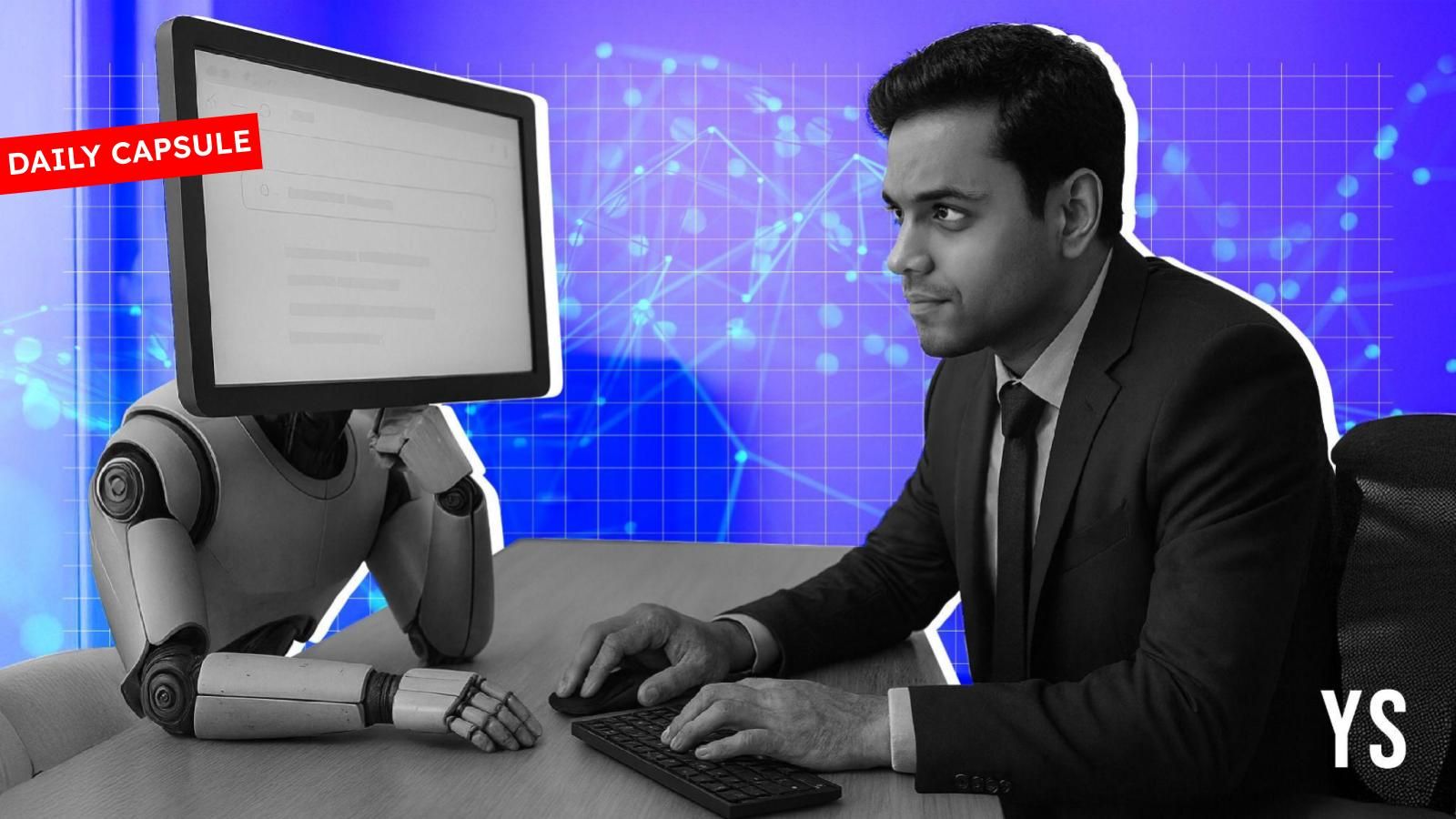Copyright yourstory

Rs 7,278-crore IPO, Rs 70,000-crore valuation—Lenskart’s IPO has been all about go big or go home. Investor interest in the company’s offering ramped up on Day 2, with overall subscription rising to 2.01 times, up from 1.13 times on Day 1. Both retail and non-institutional investor categories have shown an incredible uptick over these two days, while QIBs have maintained steady interest. This has also raised some questions: are Indian startups being valued too high as they hit the market? All eyes will now be on Lenskart’s first few weeks as a public company, with shareholders and analysts alike in a ‘wait and watch’ mode to see if the eyewear retailer retains its momentum. Speaking about newly listed companies, Urban Company’s shares plunged 3.65% on the NSE after reporting losses widening to Rs 59.33 crore in its Q2, primarily due to charges related to its stock market listing. IPOs are expensive affairs, for companies and investors alike, it appears. Lastly, this year’s most-awaited startup-tech summit is only a couple of days away. Join us at TechSparks, where you’ll hear from leadership from Swiggy, Myntra, Flipkart and more on what it takes to build a company that defines the future. Book your spot today! In today’s newsletter, we will talk about The rise of AI browsers How Pine Labs earns What women’s World Cup win means for girls Here’s your trivia for today: Which musical was built around the songs of the pop group ABBA? The rise of AI browsers Artificial intelligence has tacitly entered our browsing windows, seamlessly integrating with search features, as if it had always been there. These new AI browsers don’t just answer questions; they compile research, can fill forms and even book reservations. These new AI browsers have triggered a shift in the way we browse daily. The change feels small at first, and then rather large, because it shifts control from surfing many tabs to refining a single conversation. New capabilities: AI browsers add a reasoning layer that can answer questions, summarise content, and perform multi-step actions. Some systems run smaller models locally to keep data private, while others use more powerful cloud-based models. Anushree Verma, Senior Director Analyst at Gartner in the Emerging Technologies and Trends group, believes the strategy rests on two linked goals: gaining user behavioural data to improve model training and controlling ecosystems for integrations and monetisation opportunities. Ashis Sahoo, Associate Director- Risk Management & Audit, at WNS Global Services, frames the privacy risk as a major threat. “It’s not just the browsers; AI as a service, where people provide large amounts of information, is going to cause serious issues, especially from a data privacy perspective.” How Pine Labs earns Peak XV Partners and Mastercard-backed Pine Labs just turned a profit for the first time. But as it heads for the markets, investors are asking a basic question: how does Pine Labs actually make money? The short answer: it charges everyone—banks, merchants, and brands—for software and transaction services. Business model: Pine Labs runs two big business units. About 70% of its revenue comes from digital infrastructure and transactions. The rest, roughly 30%, comes from what it calls issuing and processing. “We don’t charge for MDR,” CEO Amrish Rau said, referring to the merchant discount rate. “We let the MDR be decided between banks and the retailer. We charge for software services as a SaaS fee.” Between FY23 and FY25, the number of merchants using Pine Labs’ services grew 34% annually, while transaction volumes expanded 48%. Gross transaction value rose 60% over the same period. What women’s World Cup win means for girls When the India women’s cricket team lifted the ICC Women’s Cricket World Cup trophy, it wasn’t just a sporting triumph—it was a rewriting of history—a history so used to celebrating the exploits of the Men in Blue. Women’s cricket may have arrived late to the party—long after athletics, boxing, and badminton brought more women into the fold—but the impact it has created is not something that can be ignored. News & updates Deals: OpenAI has signed a deal to buy $38 billion worth of capacity from Amazon Web Services, its first contract with the leader in cloud infrastructure and the latest sign that the $500 billion artificial intelligence startup is no longer reliant on Microsoft. More deals: Microsoft has struck a $9.7 billion deal with data centre operator IREN that includes access to Nvidia’s advanced chips, aiming to ease the computing crunch that has kept the tech giant from fully cashing in on the AI boom. Even more deals: South Korea's Samsung SDI has reached an agreement with Tesla to supply more than 3 trillion won ($2.11 billion) worth of ESS (Energy Storage System) batteries to Tesla over three years, the Korea Economic Daily reported. Which musical was built around the songs of the pop group ABBA? Answer: Mamma Mia. We would love to hear from you! To let us know what you liked and disliked about our newsletter, please mail nslfeedback@yourstory.com. If you don’t already get this newsletter in your inbox, sign up here. For past editions of the YourStory Buzz, you can check our Daily Capsule page here.



